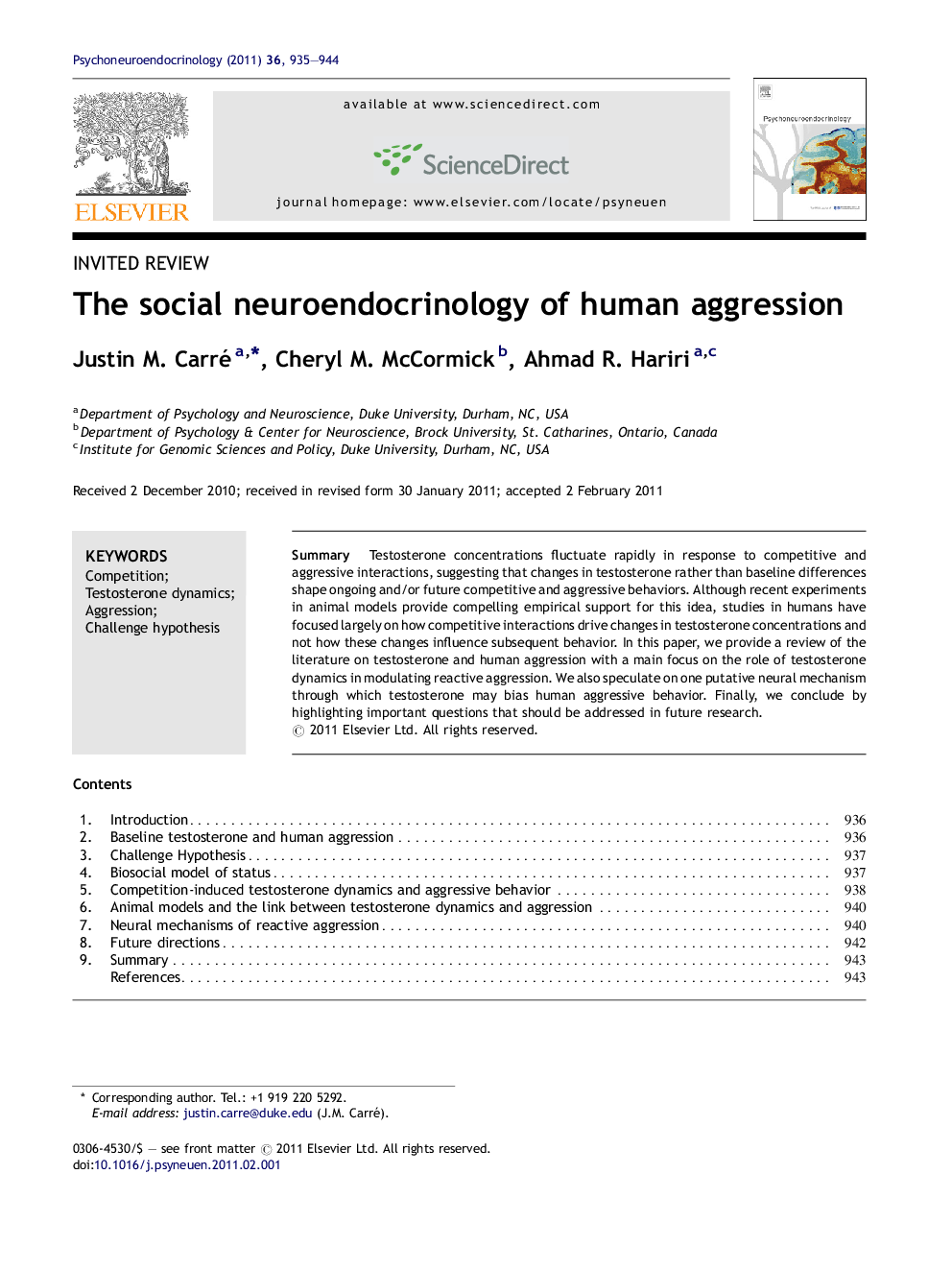| Article ID | Journal | Published Year | Pages | File Type |
|---|---|---|---|---|
| 10306415 | Psychoneuroendocrinology | 2011 | 10 Pages |
Abstract
Testosterone concentrations fluctuate rapidly in response to competitive and aggressive interactions, suggesting that changes in testosterone rather than baseline differences shape ongoing and/or future competitive and aggressive behaviors. Although recent experiments in animal models provide compelling empirical support for this idea, studies in humans have focused largely on how competitive interactions drive changes in testosterone concentrations and not how these changes influence subsequent behavior. In this paper, we provide a review of the literature on testosterone and human aggression with a main focus on the role of testosterone dynamics in modulating reactive aggression. We also speculate on one putative neural mechanism through which testosterone may bias human aggressive behavior. Finally, we conclude by highlighting important questions that should be addressed in future research.
Related Topics
Life Sciences
Biochemistry, Genetics and Molecular Biology
Endocrinology
Authors
Justin M. Carré, Cheryl M. McCormick, Ahmad R. Hariri,
